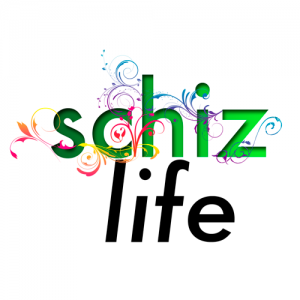Depression and schizophrenia are linked in several ways. Many schizophrenics have depression before and during their illness, but most people with depression never develop schizophrenia. While there is plenty of debate about whether schizophrenia causes depression directly or indirectly, depression is a major challenge in the lives of many schizophrenics. Below is a look at the connections between schizophrenia and depression.
Prodromal Depression
The schizophrenic prodrome, when psychotic symptoms first begin to emerge, is a common time for many patients to develop depression. Throughout this period, which may last for weeks or years, schizophrenics gradually lose their abilities to relate to others and function in everyday activities. Good students begin to fail in school, outgoing people become withdrawn and creative individuals often lose their inspiration. Confused at this sudden, pervasive disability and often shunned by friends and family, many prodromal schizophrenics become increasingly depressed.
During Illness
After the prodrome has progressed, and especially after the first psychotic episode, the negative symptoms of schizophrenia, such as social withdrawal, anhedonia and lack of motivation, overlap with depressive symptoms. Some researchers say that a disordered mood is really a manifestation of schizophrenia. Either way, according to the meta-research statistics, schizophrenics actually have the highest suicide rate of the mentally ill, with seven out of 10 attempting suicide at some point in life. In fact, the most common time for schizophrenics to attempt suicide is in the first years after being diagnosed.
Schizophrenia presents many challenges that can contribute to depression in patients. For example, physical or emotional abandonment by family and friends is common as they feel that the individual no longer seems like his or her old self. Getting and keeping a job or making new friends can also be difficult due to cognitive problems and drug side effects.
Lifestyle Factors
The negative symptoms of schizophrenia, including lethargy, disorganization and lack of motivation, can make a healthy lifestyle difficult to maintain. Paranoia and poor executive function can make an exercise routine almost impossible, especially in public. Meanwhile, healthy meals can be challenging or impossible to organize and prepare on a regular basis. Ultimately, the lack of exercise and poor nutrition can worsen negative and positive schizophrenia symptoms and put schizophrenics at higher risk of becoming and staying depressed.
Antipsychotic Drugs and Depression
Typical and atypical antipsychotic drugs reduce delusions and hallucinations to varying degrees, but they do this by muting the action of the brain’s dopamine, which is heavily involved in motivation and pleasure. At the same time, the drugs don’t improve disorganized thinking. Not only do many schizophrenics still suffer from hallucinations and delusions while taking these medications, but they also are less able to think clearly or enjoy anything. In addition, the drugs cause some patients to sleep for more than 12 hours a day. All these factors can cause or worsen depression for those with schizophrenia.
Schizoaffective Disorder
Patients who have schizophrenia along with depression are sometimes diagnosed as having schizoaffective disorder instead of schizophrenia. However, the diagnosis depends on the opinions of the treating doctor and the working definitions of each disorder. While the line between the two disorders is blurred, the choice of one or the other may change the course of treatment for better or worse depending on the patient. Depression may be ignored in some patients and over-treated in others.
Historical Considerations
Early on, when Emil Kraepelin and Eugen Bleuler made their mark in the history of schizophrenia, they noted that the vast majority of patients were depressed. They considered depressive symptoms to be a core symptom of schizophrenia, and Kraepelin divided schizophrenia into a number of depressive subtypes. It was only later that psychiatrists essentially slashed depression from the list of schizophrenia symptoms. For example, some researchers claimed that schizophrenia caused a loss of ego and made depression impossible as a result.
Today, depression is still clearly linked to schizophrenia. However, researchers vary on how they define schizophrenia with depression. Some psychiatrists discard depressive symptoms as negative schizophrenia symptoms, many use the term schizoaffective, and others use the label of “psychotic depression.” Regardless of the label, schizophrenics face many challenges that make depression more likely to occur, and a major force is the pervasive idea that schizophrenics never recover from their illness. In reality, studies have actually shown that many schizophrenics do make a partial or full recovery at some point. Some never become psychotic again after one episode, some only have a few episodes and others recover later in life. If this were more widely discussed, more schizophrenics might feel better prepared to withstand their symptoms with hope for the future.
To learn more, please visit SchizLife.com.




